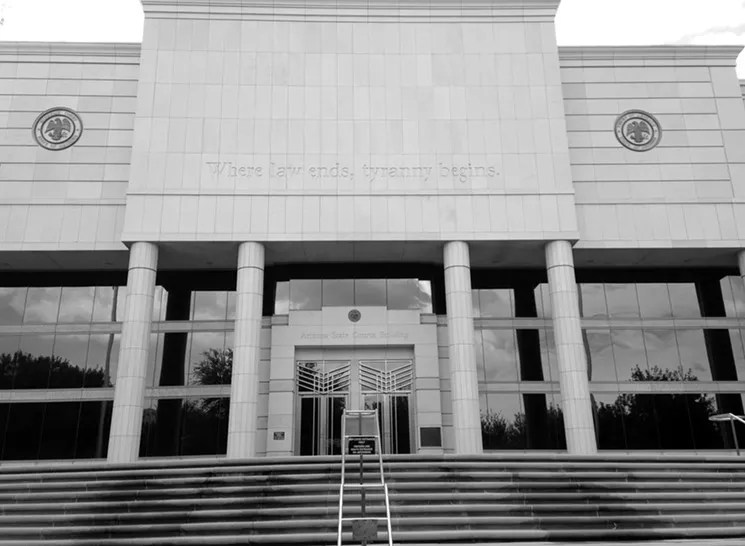
Phoenix Law/Flickr

Audio By Carbonatix
A Phoenix woman won’t be able to use frozen embryos to have a baby without the consent of her ex-husband, the Arizona Supreme Court ruled on Thursday.
The court’s decision reversed a March ruling by the state Court of Appeals that argued Ruby Torres’ right to have a child outweighed her ex-husband John Terrell’s interest against becoming a father. Five of seven Arizona Supreme Court justices ruled Torres, 39, must donate the embryos instead.
“I’m very disappointed,” Stanley Murray, a lawyer for Torres, told Phoenix New Times on Thursday. “She wanted to have a child and this was her only hope, and that hope’s been taken away from her.”
The controversial case dates back to 2014, when Torres and Terrell were dating. Torres, then 33, found out she had an aggressive cancer and that its treatment could lead to infertility. She decided to use her eggs and a donor’s sperm to freeze embryos that could later be implanted through in vitro fertilization. Terrell declined, then agreed, to serve as the sperm donor.
The couple signed a contract at their fertility center saying if they separated or were divorced, both Torres and Terrell would have to agree to implant an embryo and have a child. When they married, and later divorced, the Maricopa County Superior Court ruled the embryos must be donated, since Terrell didn’t want to become a father. But the appeals court later ruled against that, saying the contract wasn’t clear and that the family court had focused too much on the parties’ ability to co-parent.
“Nothing in the record suggests that either of them expected or intended to co-parent any offspring derived from the embryos,” the appeals court decision said.
Thursday’s state Supreme Court ruling went against that lower court’s decision, affirming the weight of the 2014 contract the couple signed.
“We are cognizant of the unavoidable emotional fall-out attendant to the disposition of the embryos here,” wrote Vice Chief Justice Ann Timmer. “But the family court was required to enforce the parties’ chosen disposition of the embryos as set forth in the Agreement.”
Claudia Work, a lawyer representing Terrell, told New Times she feels the Supreme Court got it right.
“This was a case that, once you took all the emotion out of it, hinged simply on contract law,” Work said. “It’s a cautionary tale to clinics to be careful on their phrasing. It was clear that the only options available to the trial court were to enforce the contract and donate in this situation.”
Torres likely does not have grounds to take the case to any higher court, according to Murray, since it doesn’t involve any issues surrounding the U.S. Constitution.
The years-long case inspired a bill in the Arizona Legislature that allows a former spouse to use the embryos even if their partner objects, as long as he or she doesn’t require the ex-spouse to pay child support or take on other parental responsibilities. It became law in 2018, but wasn’t retroactive to include past cases.
But Work says couples who sign fertility clinic contracts need to be wary of all of the details, since the law only applies to married people, and is limited in other ways, too.
The Supreme Court’s decision “is going to have an impact on many couples and many disputes in the future,” she said, “and depending on how the new law is tested, may end up applying to cases that the new law intends to govern.”
“I would continue to encourage people to contract for every eventuality they can foresee as to disposition of the embryos,” Work said. “Because it’s not a done deal.”